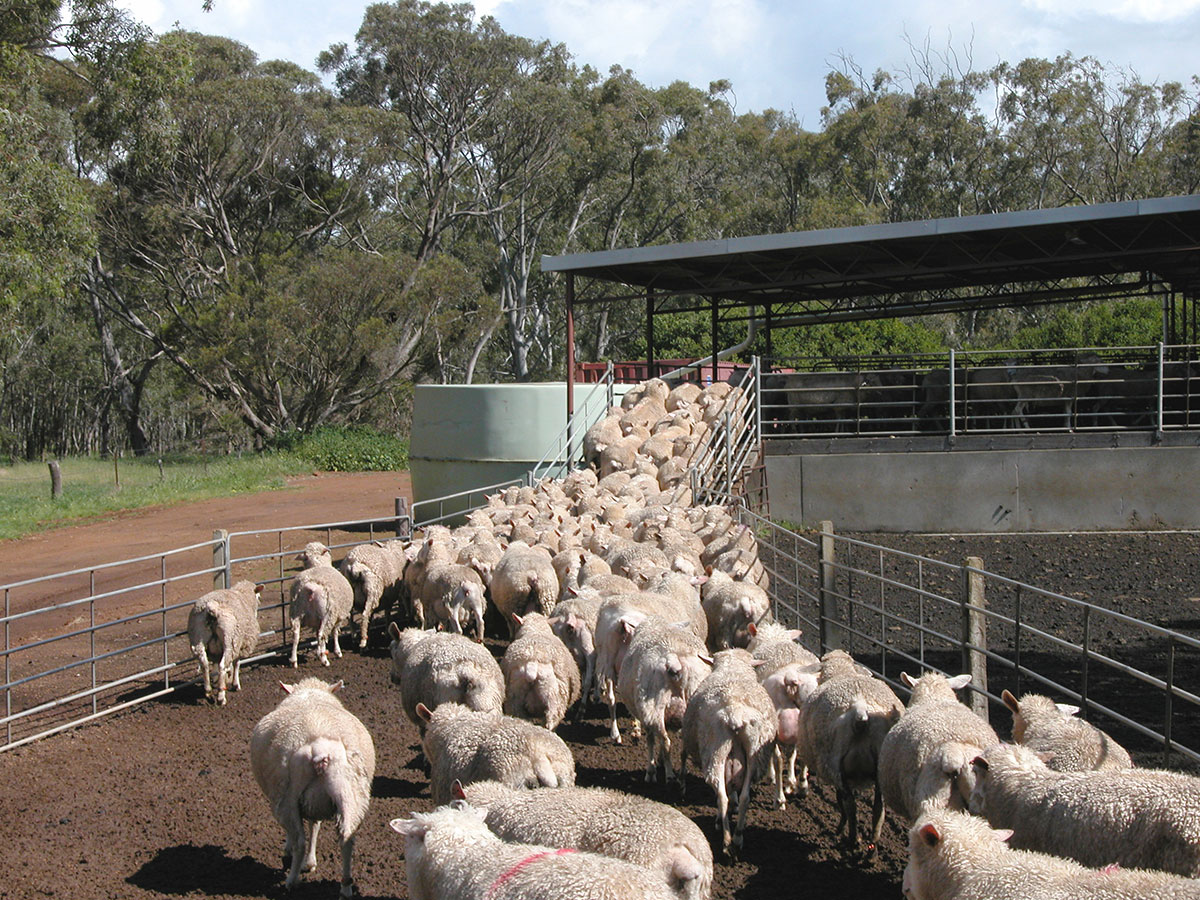In Australia, a set of standards and guidelines outlines the requirements for livestock transport, from mustering and preparation for transport, to transporting and unloading.
These standards and guidelines ensure safe and healthy treatment of stock and a quality product from paddock to plate.
At the farm gate
Livestock welfare is the responsibility of the consignor when mustering and preparing for transport. This includes deciding if an animal is fit to load. An animal is not fit to load if it:
- cannot walk normally or bear weight on all legs
- is suffering from obvious injury or severe distress
- is severely emaciated or visibly dehydrated
- is blind in both eyes
- is in late pregnancy
So, if in doubt, leave it out!
Appropriate feed and water provisions, and necessary holding periods are to be organised by the consignor where all cattle, sheep and goats need to be off feed and water for 8-12 hours prior to loading. Time off water prior to loading is part of the maximum time off water for the whole journey.
Handling livestock quietly and with minimal force reduces stress and the risk of injury. It is also important to consider the loading set-up to ensure yards, races and ramps don’t cause injury or harm to stock or human.
All animals leaving the property must be appropriately identified with an NLIS ear tag and relevant NVD.
On the road
The transporter is responsible for the safe loading and unloading of livestock. This includes determining the appropriate loading density and a final ‘fit to load’ inspection.
They are also responsible for knowing how long stock have been off water and plan for appropriate spell periods, when the maximum time off water is reached, and provide the animals with water, food and rest when required.
The standards are developed for road travel and will vary for animals being exported by sea or air.
| Maximum time off water | Minimum spell time | |
| Cattle over 6 months Goats over 6 months Sheep over 4 months | 48 hours | 36 hours |
| Calves/cattle under 6 months | 24 hours | 12 hours |
| Kids/Goats under 6 months Lambs/Sheep under 4 months Pregnant or lactating stock | 28 hours | 12 hours |
Spell time is the minimum time period that stock must be rested, given access to food and water and space to lie down before starting another journey.
Top tip: If an accident occurs involving a heavy vehicle transporting livestock, then the transporter or person at the scene can call LivestockASSIST on 1800 425 782. This is a free 24 hour national hotline dedicated to coordinating an emergency response for incidents involving livestock transport.
On arrival
Once the animals have arrived at their location and been unloaded, either to another form of transport, saleyard or property, the responsibility of livestock welfare falls to the receiver.
The MLA fit to load guide is also a handy reference and can be searched and downloaded here.
